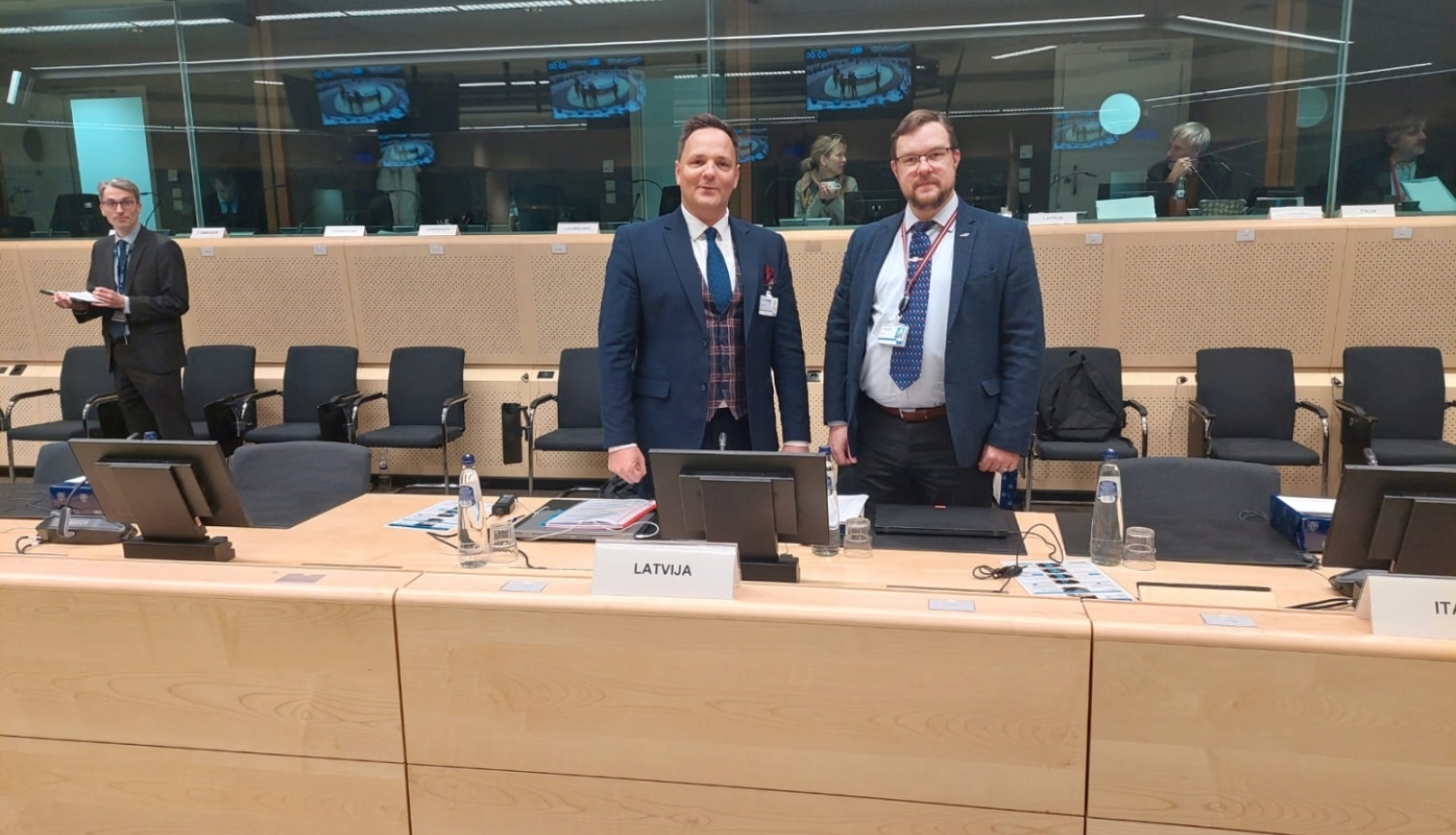From December 11 to 13, in Brussels, Raivis Kronbergs, the State Secretary of the Ministry of Agriculture, participated in the Council meeting of the EU Ministers for Agriculture and Fishery, where the EU Member States achieved an agreement on fishing rights in 2023 in the EU waters and waters outside the EU in Atlantic Ocean, Northern Sea, Mediterranean Sea and Black Sea as well as on stocks of specific deep-sea species for 2023 and 2024.
After heated discussions of Member States with the European Commission (EC) over two days and nights, in the early morning of December 13, the agreement has been achieved on fishing opportunities of the EU Member States in 2023 in different waters, surrounding the EU Member States as well as in open waters of the Atlantic Ocean. Latvia was directly interested in fishing opportunities in Northern part of the Atlantic Ocean because this Regulation did not affect fishing in the Baltic Sea) Regulation on fishing opportunities in the Baltic Sea was adopted already in October of the current year).
At the Council meeting, Latvia emphasized that since 2017, Member States were not able to utilize fishing opportunities of snow crabs in Svalbard waters. Fishing of snow crabs is significant for Latvia therefore Latvia is urging EC to be more proactive to ensure that Member States can utilize the opportunities provided by Regulation. It is not acceptable for Latvia that due to disagreement between Norway and EU in fishing matters, the EU Member States are not able to utilize their fishing rights in these waters.
Regarding waters closer to Latvia, there are additional protection measures adopted for the European eel. These measures are planned to apply to all the EU waters, including Baltic Sea. In 2023, a ban is being introduced on eel catch in sea for the period from early October to late December as well as each Member State will have to lay down additionally three-month ban on eel catch in the period of an intensive migration of eel in the sea in the period from early March to late August. Whereas recreational catch of eel in the sea will be banned all the year-long.
Such drastic measures for protection of eels are justified by the critical and endangered situation with this fish stocks. However, at the Council, it was indicated time and again that fishing is not the major and only one reason affecting condition of this fish stocks. Therefore, steps must be taken to impact and reduce such factors as disappearing of eel habitats, breaches of migration routes in rivers, increased pollution, spread of diseases, impact of predators – birds and animals, illegal catch and trade of eels and lastly how to overcome consequences of climate changes.
There were also discussions at the Council on the situation in agricultural market and solutions to stabilize this situation in the sector of agriculture and food, regarding Russia’s invasion of Ukraine. Latvia repeatedly emphasized that food production and agriculture is the matter of national safety therefore, it is vitally important to ensure ability of agricultural enterprises to continue operation in crisis situation and adapt to market conditions. Consequently, it is necessary to implement aid measures therefore, Latvia pointed out that it should be made possible in 2023 to use agricultural reserve of the Common Agricultural Policy to support the sector of agriculture. Latvia also outlined that it is important to change principles of distribution of the funding among Member States, for example, based on inflation of prices for energy resources. Thus, support would be channeled to the States, which have been affected the most in this crisis.



